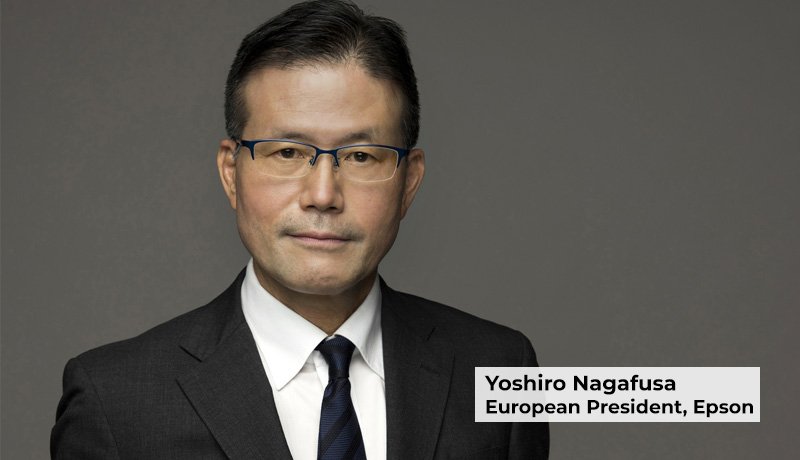26 December 2024, Thu |
8:03 PM

Epson has pledged to focus future R&D expenditure on the development of new materials and technologies to reduce the environmental effect, six months after announcing a $100 billion commitment in sustainable technology innovation.
Epson is reconsidering the fundamental ways it creates ideas and puts them to market to achieve this and increase global competitiveness with the use of new innovation and venture capital funds.
“For innovation to be truly transformative requires cultural change and collaboration. These initiatives are about ensuring that all voices are heard, and all ideas are considered, as we do our part in acting for society and the environment,” says Yoshiro Nagafusa, European President, Epson.
“We see open innovation as a key driver for our future – increased collaboration, partnerships, and shared knowledge enable development and innovation for the better. This is true whether we look inside our own business or outside to collaborate with others in order to solve complex problems.
“While we have long sought to operate within a healthy and open-minded corporate culture, it is important for us to keep evolving.”
“The low rate of effective waste plastic use and the environmental pollution caused by marine plastics have become significant global problems,” continues Yoshiro Nagafusa.
“We believe in providing solutions to benefit both people and planet, replacing fossil-fuel-based resins and reducing carbon dioxide emissions and environmental impact.”
“We’re very proud of these developments and Epson’s R&D strategy which is rooted in a firm commitment to developing innovative technologies that help solve societal issues.”
Epson is transforming into a more open working environment with a ‘bottom-up’ culture, encouraging and empowering its employees to uncover and share new opportunities more quickly.
Employees will be better supported to share and collaborate on new ideas, with an overarching focus on sustainable solutions, thanks to a strong notion that all innovation must be anchored in solving social challenges – from minimizing resources to decreasing waste.
Employees will be consulted on the workplace environment and management methods in order to ensure an open culture.
Epson is committed to helping a sustainable society through open partnerships and co-operations using its patented technologies, goods, and services, rather than pursuing excessive revenue growth in the pursuit of a fair profit.
Epson will also expand Epson X, a dedicated venture capital innovation fund established in 2020 to accelerate collaboration and open innovation with an initial investment of $5 billion.
Epson is also showcasing the progress it has already made in the form of groundbreaking biodegradable and recyclable materials and inventions, such as biomass polymers and recycled powdered metals, to go along with this pledge.
Epson has contributed to the development of a new type of bioplastic (plastics generated from biological sources) as part of a collaborative collaboration of organizations, exhibiting the benefits of open innovation in action. ‘Pararesin’ is a promising new biomass plastic that is made from paramylon, a polymer contained in Euglena algae. By 2030, the group hopes to be able to produce 200,000 tonnes of marine-degradable, biomass-derived plastic per year as a viable alternative to conventional plastics.
Epson is attempting to create a circular manufacturing infrastructure through its subsidiary firm, Epson Atmix, by developing products for 3D moulding that employ metal powders purified from scrap metals that can be used to make components such as vehicle and electrical parts.